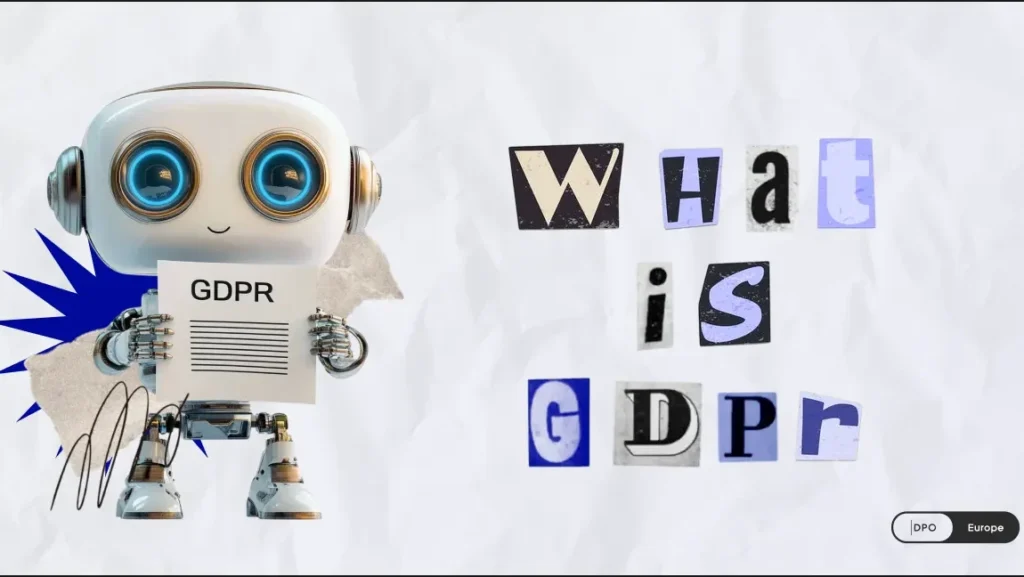Global Data Protection Officer as a Service
Stay Compliant, Save Costs, and Reduce Risks

Global DPO as a service is tailored for tech companies and offers advanced AI-driven risk management, timely incident response, and Data Subject Access Request (DSAR) handling. Based on solid expertise in international data protection regulations, our team provides proactive data privacy solutions that safeguard your business operations across jurisdictions.
All at a cost lower than hiring an in-house DPO.
What Does the Service Package Include?
Integrated Compliance Framework
The comprehensive compliance framework covers GDPR and international data protection laws. We seamlessly integrate privacy regulations into your processes across jurisdictions and ensure compliance wherever you do business.
AI-Driven Risk Assessments
Our AI-powered tools (DPO OS, Applicability App) regularly evaluate your organization’s privacy practices, spots potential risks, and delivers practical solutions to prevent potential data breaches and maintain compliance on the global level.
Tailored Training Programs
The customized training programs help your employees build a personal data protection foundation and learn best practices to minimize internal risks while creating a privacy-oriented workplace culture.
Timely Incident Response
Our experienced consultants promptly manage data breaches, security incidents, and Data Subject Access Requests (DSARs), minimizing disruption.
Strategic Partnership
We’re more than a service provider — we’re your strategic partner. We align with your goals, conduct regular reviews, and help your data protection practices grow with your business.We deliver tailored AI compliance trainings that translate complicated regulatory guidelines into simple terms for any audience and ensure their seamless implementation.
Transparency and Accountability
Our team provides complete transparency through detailed reports on compliance, risk assessment, and incident management. This approach maintains accountability throughout our partnership.
How Does It Work?
Our proven 3-phase approach provides long-lasting compliance:

Phase 1: Audit and Gap Analysis
Through a detailed audit, we assess your business processes and current data protection practices to identify gaps.
Phase 2: Compliance Alignment
We help you comply with local and international regulations by implementing policies, privacy controls, and training to reach a credible compliance level.
Phase 3: Continuous Compliance
Our team regularly monitors ongoing projects, adapting to new regulatory changes, and managing future risks to ensure compliance.
Consultant
DPO Outsourcing vs. In-House DPO
In-house DPO
An in-house DPO offers several key advantages:
- Deep understanding of internal business processes.
- Immediate availability for consultations.
- Enhanced confidentiality of internal procedures.
However, due to a shortage of 75 000 DPOs in the EU market alone, many organizations appoint existing employees to this role.
This approach comes with several drawbacks:
- Employees must balance DPO responsibilities with their primary roles, which often leads to delayed privacy-related tasks.
- Organizations spend a lot of time and money on training and certifications.
- There’s a risk of losing trained DPOs to competitors offering better conditions.
DPO Outsourcing
nder privacy regulations, businesses can outsource the DPO responsibilities. This approach is often more cost-effective and provides access to experienced specialists who can make informed decisions quickly.
Key benefits of an outsourced Data Protection Officer:
- No extra costs like workplace setup, benefits, or coverage during absences.
- Faster decision-making from experienced professionals.
- Protection against regulatory sanctions through proper documentation and authority communication.
- No recruitment or retention issues.
- Independence from internal politics and conflicts of interest.
What Sets Data Privacy Office Europe Apart?
Our team of experts provides global consulting services to help businesses ensure personal data protection, from startups to large enterprises.
The Global Team, Not a Single Specialist
Proven Expertise
Extensive experience in data privacy and AI governance across industries, including Big Tech. Built on the foundation of hundreds of GDPR assessments, our approach ensures comprehensive risk evaluation and mitigation in personal data protection.
Our tool simplifies compliance by helping you determine which laws apply to your business and what steps you need to take to comply.
Actionable Insights
Our team implements AI technologies and privacy best practices to streamline our own processes and shares these useful approaches with our clients.
Tailored Training
We deliver tailored training that translates complicated regulatory guidelines into simple terms for any audience and ensures their seamless implementation.

Pricing Options
Basic Package
Up to 250 employees | up to 10 countries
- Cost: ~2 000 EUR/month
- Grace Period: 1-month free trial
- Guarantee: 15% compliance score improvement in 6 months
Premium Package
250–750 employees | up to 20 countries
- Cost: ~5 000 EUR/month
- Grace Period: 3-month risk assessment and reporting trial
- Guarantee: 25% risk reduction within 1 year
Enterprise Package
750+ employees | up to 50 countries
- Cost: ~12 000 EUR/month
- Grace Period: 3-month discounted onboarding
- Guarantee: Performance-based compliance milestones
Guarantees
€1 Million Regulatory Risk Coverage
We provide comprehensive protection through professional liability insurance coverage up to €1 million.
Reputation Protection
In the case of a regulatory investigation, we will defend your interests by managing all communications and representing you for supervisory authorities.
Tailored and Disruption-Free Compliance Execution
We integrate seamlessly with your existing workflows and communication channels to deliver compliance solutions promptly and without disruption.
Related Resources
Frequently Asked Questions
What is a Data Protection Officer?
A Data Protection Officer (DPO) is a key role in ensuring personal data protection. The DPO’s main responsibilities include monitoring GDPR compliance, providing guidance on personal data processing, training employees on privacy regulations, acting as a liaison with supervisory authorities, conducting regular risk assessments to identify and minimize potential threats to personal data.
Which companies must appoint a Data Protection Officer?
According to GDPR, a DPO must be appointed if an organization:
- Is a public authority or body (excluding courts in a judicial capacity).
- Conducts large-scale, regular and systematic monitoring of individuals.
- Processes large-scale special categories of data or data relating to criminal convictions.
Even if your organization doesn’t fall into these categories, appointing a DPO is still considered best practice for ensuring proper data privacy.
Can Global DPO as a Service be integrated with the company's existing compliance processes?
Yes, it seamlessly integrates with your existing compliance processes. Our team collaborates with your internal stakeholders to align data protection strategies, implement privacy controls, and coordinate with your current systems. All while minimizing disruptions and maximizing performance.
Get Started Today
When you complete the form, you will:
- Have the opportunity to ask questions concerning data protection.
- Discover if this product is right for your business or project.
- Receive directions on cost, duration, and other details.










